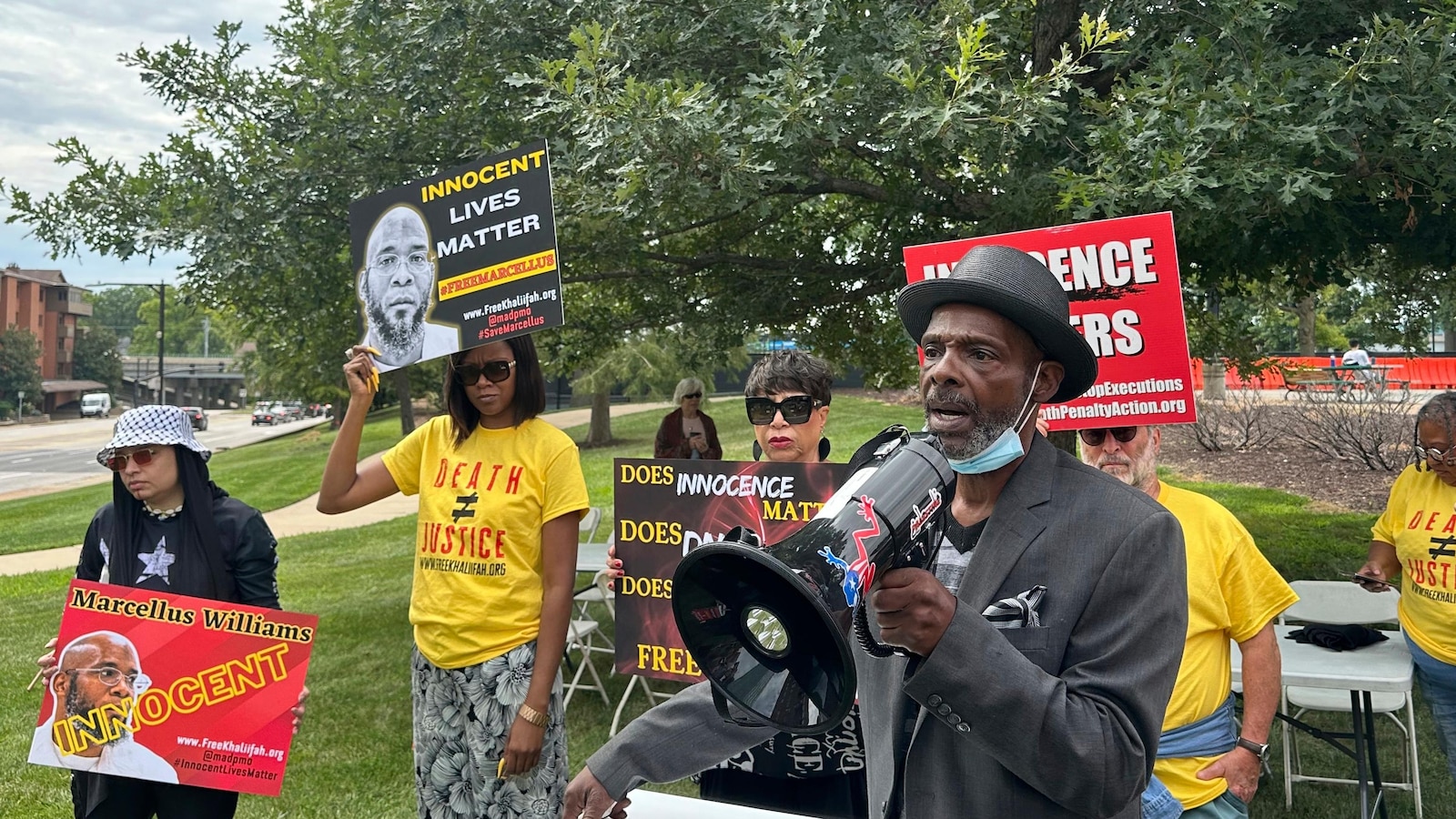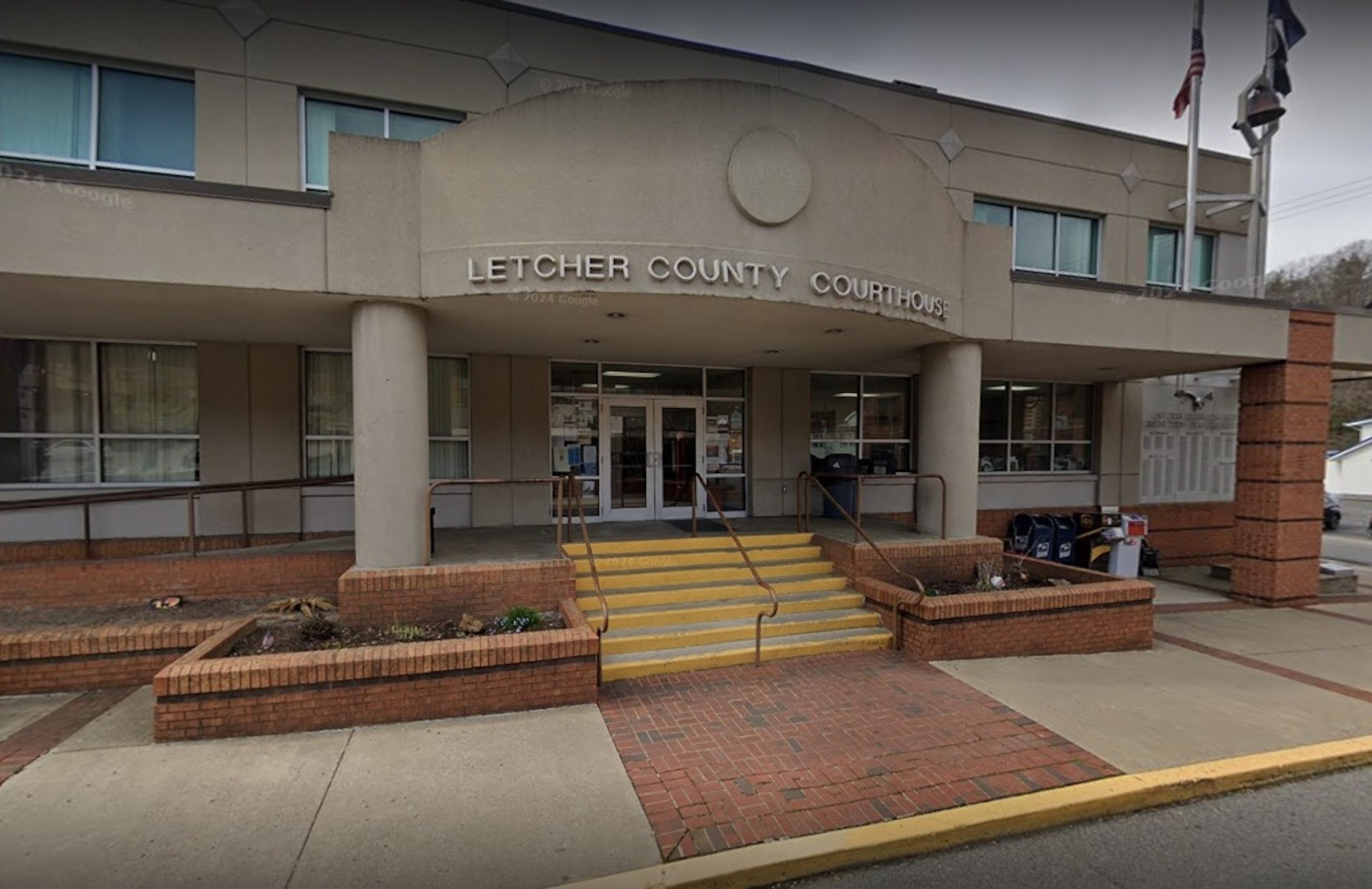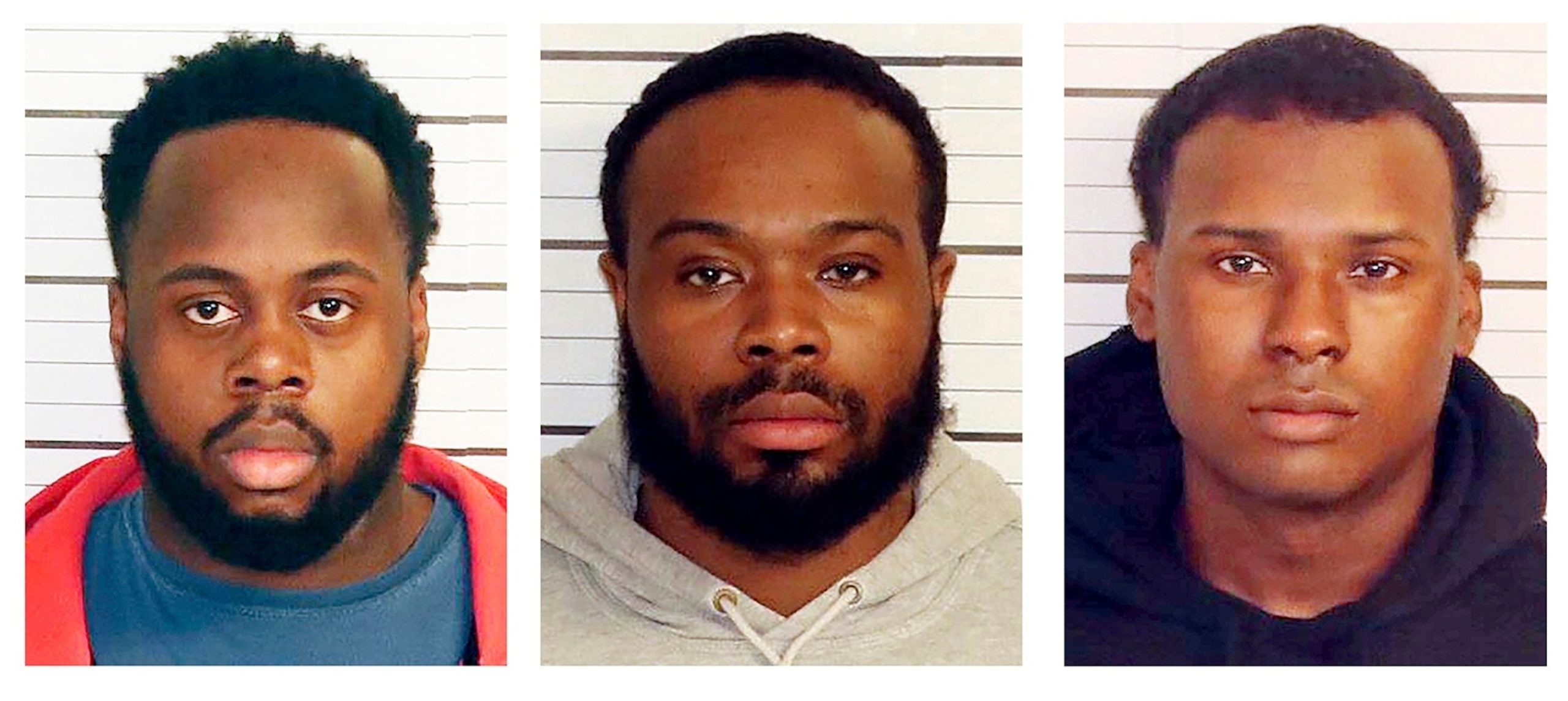
ST. LOUIS — ST. LOUIS (AP) — Marcellus Williams thought the DNA evidence was enough to remove him from Missouri’s death row, perhaps even him from prison. A decades-old mistake by a prosecutor’s office has kept his life hanging in the balance.
Williams, 55, is scheduled to be executed on Sept. 24 for the 1998 stabbing death of Lisha Gayle in the St. Louis suburb of University City. St. Louis County Circuit Judge Bruce Hilton on Wednesday will preside over an evidentiary hearing challenging Williams’ guilt. But the key piece of evidence to support Williams is DNA testing that is no longer viable.
A 2021 Missouri law allows prosecutors to file a motion seeking to vacate a conviction they believe was unjust. St. Louis County Prosecuting Attorney Wesley Bell filed such a request in January after reviewing DNA testing that wasn’t available when Williams was convicted in 2001. Those tests indicated that Williams’ DNA was not on the murder weapon. A hearing was scheduled for Aug. 21.
Instead of a hearing, lawyers met behind closed doors for hours before Matthew Jacober, a special prosecutor for Bell’s office, announced that the DNA evidence was contaminated, making it impossible to show that someone else may have been the killer.
New testing released last week determined that DNA from Edward Magee, an investigator for the prosecutor’s office when Williams was tried, was on the knife. Testing also couldn’t exclude the original prosecutor who handled the case, Keith Larner.
“Additional investigating and testing demonstrated that the evidence was not handled properly at the time of (Williams’) conviction,” Jacober told the judge. “As a result, DNA was likely removed and added between 1998 and 2001.”
That prompted lawyers for Williams and the prosecutor’s office to reach a compromise: Williams would enter a new, no-contest plea to first-degree murder in exchange for a new sentence of life in prison without parole. Hilton signed off on the agreement. So did Gayle’s family.
Lawyers for the Missouri Attorney General’s Office did not.
At Republican Attorney General Andrew Bailey’s urging, the Missouri Supreme Court blocked the agreement and ordered Hilton to proceed with the evidentiary hearing.
The execution, now less than four weeks away, is still on. Hilton is expected to rule by mid-September.
Williams has been close to execution before. In August 2017, just hours before his scheduled lethal injection, then-Gov. Eric Greitens, a Republican, granted a stay after testing showed that DNA on the knife matched an unknown person.
That evidence prompted Bell to reexamine the case. A rising star in Missouri Democratic politics, Bell defeated incumbent U.S. Rep. Cori Bush in a primary this month and is heavily favored in the November general election.
Three other men — Christopher Dunn last month, Lamar Johnson and Kevin Strickland — have been freed after decades in prison after prosecutors successfully challenged their convictions under the 2021 law.
Prosecutors at Williams’ trial said he broke into Gayle’s home on Aug. 11, 1998, heard water running in the shower, and found a large butcher knife. When Gayle came downstairs, she was stabbed 43 times. Her purse and her husband’s laptop were stolen. Gayle was a social worker who previously worked as a reporter for the St. Louis Post-Dispatch.
Authorities said Williams stole a jacket to conceal blood on his shirt. Williams’ girlfriend asked him why he would wear a jacket on a hot day. The girlfriend said she later saw the laptop in the car and that Williams sold it a day or two later.
Prosecutors also cited testimony from Henry Cole, who shared a cell with Williams in 1999 while Williams was jailed on unrelated charges. Cole told prosecutors Williams confessed to the killing and offered details about it.
Williams’ attorneys responded that the girlfriend and Cole were both convicted felons out for a $10,000 reward.
In a recent development in the case of a Missouri death row inmate, there has been a significant breakthrough that could potentially lead to the avoidance of his execution. The inmate, whose name has not been disclosed to the public, has been granted a new hearing by the Missouri Supreme Court, giving him a chance to present new evidence that could potentially change the outcome of his case.
The inmate was convicted of a heinous crime and sentenced to death several years ago. However, in recent years, there have been doubts raised about the fairness of his trial and the validity of the evidence presented against him. This new hearing provides an opportunity for the inmate to present this new evidence and potentially have his conviction overturned or his sentence commuted.
The decision to grant the new hearing comes after years of legal battles and appeals by the inmate’s defense team. They have argued that crucial evidence was not properly presented during the original trial, and that there were serious flaws in the legal proceedings that led to the inmate’s conviction.
The Missouri Supreme Court’s decision to grant the new hearing is a significant step towards ensuring that justice is served in this case. It shows that the court is willing to consider new evidence and give the inmate a fair chance to present his case.
While it is still uncertain what the outcome of the new hearing will be, this development gives hope to the inmate and his supporters that he may have a chance to avoid execution. It also highlights the importance of ensuring that all individuals, even those convicted of heinous crimes, are given a fair trial and due process under the law.
The case of the Missouri death row inmate serves as a reminder of the complexities and challenges of the criminal justice system, particularly in cases involving capital punishment. It also underscores the importance of continued advocacy and legal representation for individuals facing death sentences, in order to ensure that their rights are protected and that justice is served.
As the new hearing progresses, it will be important for all parties involved to carefully consider the evidence presented and to uphold the principles of fairness and justice. Ultimately, the outcome of this case will have far-reaching implications for the inmate, his family, and the broader criminal justice system in Missouri.


